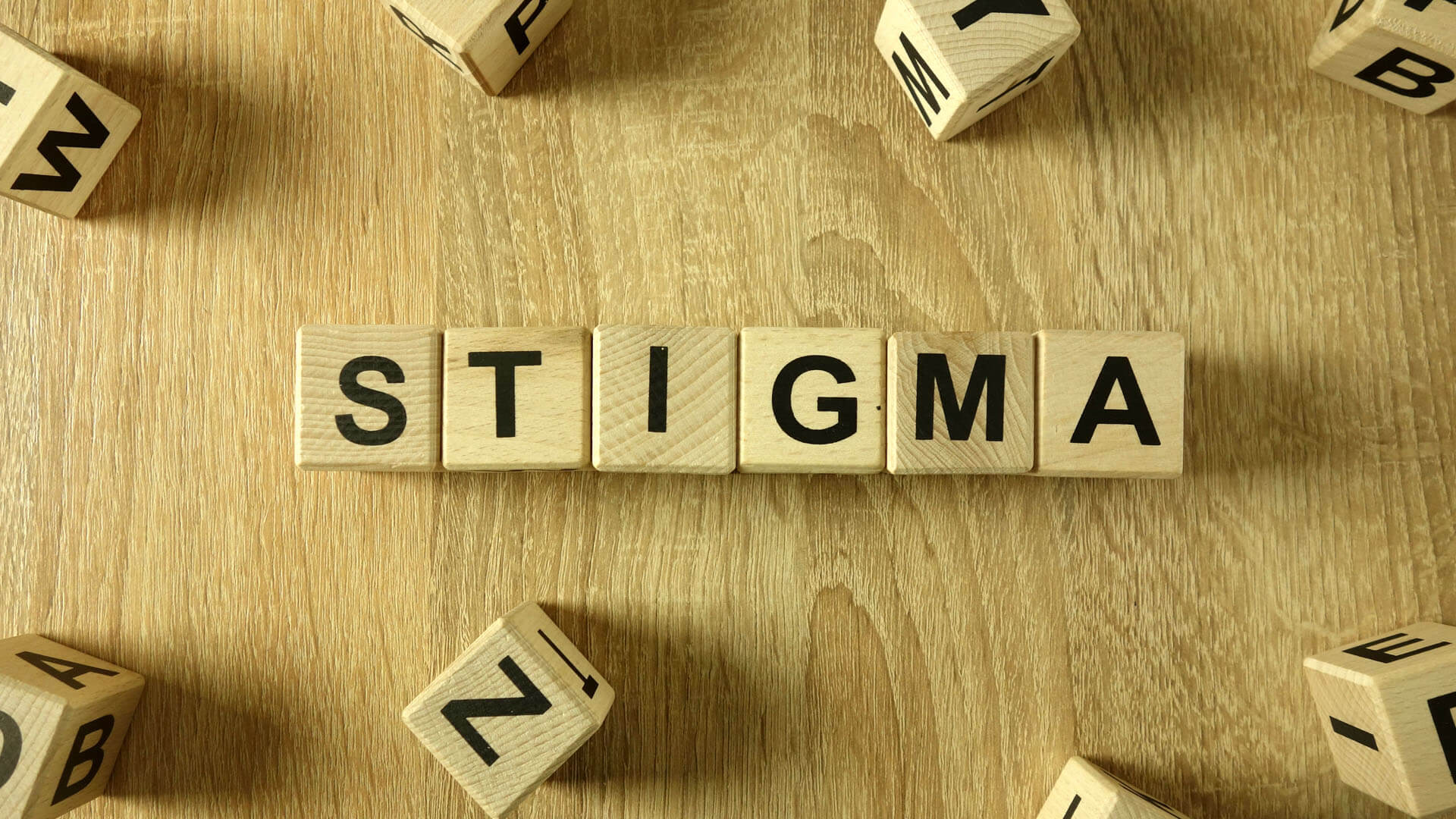You have almost certainly heard the saying, “Sticks and stones / may break my bones / but words will never hurt me.” Among the vast collection of well-intentioned but potentially harmful sayings, this is arguably the most misguided. While they might not cause physical injury, think of how much pain can be caused with words! Language forms our understanding of the world around us, and it can be used for both good and harm. Unfortunately, negative stigma surrounds mental health like a dark halo that has been shaped by hundreds of years of negative words and actions.
Too often we see mental health issues as a sign of weakness, something that we somehow must suffer in silence and/or that we have brought upon ourselves. We are hesitant to admit when there is something wrong, to talk about our mental health, and to seek help. We feel alone in our struggle, and have a hard time remembering just how common mental health issues really are (one in five Americans experience mental health conditions, according to the CDC).
Raising a child with mental health issues is difficult all by itself, and the stigma surrounding these issues makes it extremely daunting. Here are some things that you can do to improve your child’s ability to talk and think about mental health, and to reduce the stigma in your family and in those around you:
- Talk about mental health, naturally and often. We have a strong tendency to sweep mental health under the rug or talk about it in a very stigmatizing manner, referring to “crazy uncles” or “nutty neighbors.” Rather than hiding mental illness and mental health struggles, talk about them as naturally as you would any other issue, but without name-calling or shaming. Talk about feeling anxious, about experience with depression, about a friend or family member’s stay in an inpatient treatment center. Do not hide mental health under the rug.
- Discuss suicide with your child, particularly if someone in your family or community, or a prominent individual in society, has died by suicide. While most of us tend to avoid this topic, studies show that this is actually the worst thing we can do. One of the most valuable pieces of information for individual or individuals struggling with thoughts of suicide is how common such thoughts are, and that just because a person is having the thoughts doesn’t mean they need to act upon them.
- Talk about therapy as a natural thing. Getting mental health treatment is no more shameful than a doctor’s appointment, but we know that less than 50% of people with a diagnosed mental health issue/s seek treatment. Going to therapy may feel like admitting defeat based on the general conversation, but the truth is that therapy has been found to be more than 90% effective. If you go to therapy, make a point to talk about it openly with your family and friends. The less embarrassed you are to talk about therapy and mental health, the more comfortable others around you will be when they feel like they might need help, or to accept the suggestion that they talk to someone if you see signs of mental health issues.
- Avoid using words like “crazy,” “nuts” and “insane.” While you might refer to a party or event as “crazy” and mean that it was good, rarely do we say that a person is crazy and intend to compliment them. When our mental health is in question, we immediately associate ourselves with those words, and draw the association to a place where we feel like we are broken, hopeless and in danger of being “taken away.” By dropping these words from your vocabulary, particularly with your child, you break down some of those associations.
- Separate emotions from identity. Your feelings do not define you. You are not anxious, you FEEL anxious; you are not depressed, you are FEELING depressed. This is a very important distinction, as it can help a young person (or anyone) get through a difficult situation. By separating our emotions from our identity, we might see that we have the ability to treat the symptoms and find wellness, rather than accepting the symptoms as a definition of who we are as a person.
- Talk to your child. The best way to monitor for signs that person needs help is to maintain open communication. Watch for signs of the following, and have an open (non-confrontational) conversation with them:
- Changes in behavior, mood, sleeping, eating, and routine. This includes “suddenly” acting happy after a long period of sadness/depression.
- Lack of interest in things they previously cared about, particularly when they do not replace them with new interests.
- Withdrawing from others and isolation.
- Talking about/reading about/consuming art about suicide and death.
- Making statements about suicide, worthlessness, hopelessness or self-hate. Saying goodbye or giving away possessions.
- Difficulty with establishing or maintaining healthy relationships.
- Risky and/or impulsive behavior.
- Secretive and/or paranoid behavior or statements.
- Avoid judgment. Hearing someone make statements about severe mental health issues, suicide, self-injury, etc. is likely to create a strong reaction in you. Remember that your judgment will silence them, and the goal is to get them to talk.
- Be comfortable with silence. Don’t feel the need to be constantly talking when you sit down with your child. Just sit with them rather than trying to force it.
- Don’t use the blame game. When a child makes aggressive or threatening statements against themselves or others, we have a tendency to shut them down: “Don’t say that!” “How could you even think that?” “That kind of stuff will get you locked up.” The list goes on, but all these responses do is silence the struggling person and make it less likely that they will seek help from you again. Instead, try to stay as calm as possible, and ask open-ended questions. Try: “How long have you felt that way?”
- Remember that, no matter how good you do at fighting mental health stigma in your home and family, it still exists. Your child will be hesitant to talk about it, and likely to dismiss help when it is offered. You might have to be persistent (ask them several times, remind them that you are thinking about them), but do not force them to talk about it.
- Educate yourself. Courses like Mental Health First Aid offer people a basic understanding of mental health issues as well as an easy action plan to give help until professional help can be accessed. There are countless additional resources as well!
When harnessed for good, words have the power to heal, to inform and to empower. The key to changing and even one day ending the stigma of mental health is to have open and honest communication about it, and to reshape our conversation towards one of acceptance and help.






